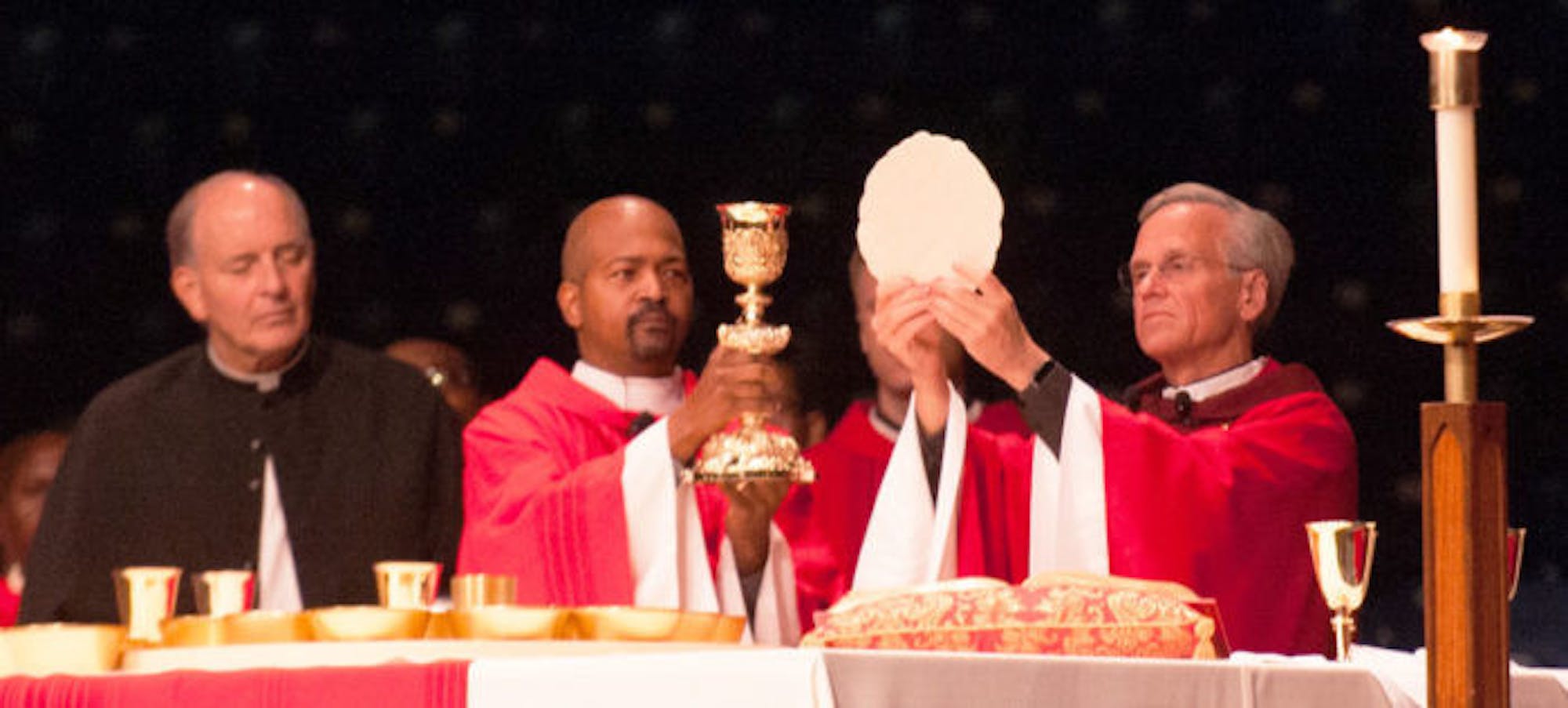Speaking at the opening mass of the academic year Tuesday, University President Fr. John Jenkins commented on the clerical sex abuse scandal within the Catholic Church following a Pennsylvania grand jury report on the widespread prevalence of abusive priests and the various cover-ups Church leaders utilized to protect these abusers. Jenkins also delivered a homily about the importance of community and using individual skills for the betterment of a larger group.
In his opening remarks at the service, Jenkins said the mass should be a day of “anticipation” for the new school year. However, he said that the abuse scandal had “cast a pall” over what should have otherwise been a joyous occasion.
Jenkins, himself a priest, expressed disgust that some clerics would take advantage of their position to carry out evil.
“The stories in that report and in other reports are appalling in themselves, but are made much more so because the offenders were priests, called to be examples and pastors to those they exploited,” he said. “Such stories are painful to all, but they are particularly searing to me and the other priests with me today, whose commitment can seem so tarnished, so soaked in filth, by those who so badly abused it.”
Jenkins further elaborated on this theme with a discussion of the betrayal at the heart of the scandal. The University President said Catholic institutions which should protect those who cannot help themselves, were guilty of “perversely exploiting the vulnerable and corrupting the young.” Specifically referencing the various cover-ups carried out by bishops in Pennsylvania, Jenkins said that bishops who should have been “shepherds” had in many situations “done more to protect the wolves than the sheep.”
“For all these reasons, I — and many — feel deep sadness and shame,” Jenkins said.
Quoting a letter published Monday from Pope Francis to the world’s Catholics regarding the abuse scandal, Jenkins said the University will do everything in its power to combat abuse.
“As Pope Francis wrote on Monday, ‘Today we are challenged as the People of God to take on the pain of our brothers and sisters wounded in their flesh and in their spirit . . . Today we want solidarity, in the deepest and most challenging sense, to become our way of forging present and future history.’ I know Bishop Rhoades is committed to this path in this diocese, and Notre Dame is as well. We will do all we can to create a safe, nurturing environment everywhere,” he said.
Jenkins expressed a hope for a better future and dedicated the mass to the victims of abuse.
“‘Where sin abounds,’ writes St. Paul, ‘there grace abounds all the more,’” he said. “Let us pray that, though shaken by these stories of sin and exploitation, we may find the grace to help heal wounds and protect the vulnerable and young. I ask you to join me in offering this Mass for victims of abuse in Pennsylvania and elsewhere, and asking God’s help to prevent it in the future. Let us ask for God’s mercy, and for the Holy Spirit to come among us.”
Later in the mass, in his homily, Jenkins reflected on a passage from 1 Corinthians in which St. Paul comments on the prideful practices and habits of the early Christian community in Corinth.
“In this passage I just read, Paul addresses their practice of boasting about their spiritual gifts, claiming superiority for their gifts over those of others,” he said. “That pride, that need to raise oneself over others, led them to disparage what others bring. That, of course, is the zero-sum logic of human pride: ‘my light shines brighter if I can dim the lights of others in people’s eyes.’”
Rather than focus selfishly on individual talents, Jenkins implored the congregation to use their gifts in the service of the larger community.
“The antidote to that poison, Paul suggests, is for people to see their skills and abilities do not rise from themselves and they are not their individual possessions,” he said. “They are, rather, gifts from God distributed freely for the good of the community, so that the community may be enriched by them. They are gifts to the individual, for the community.”













